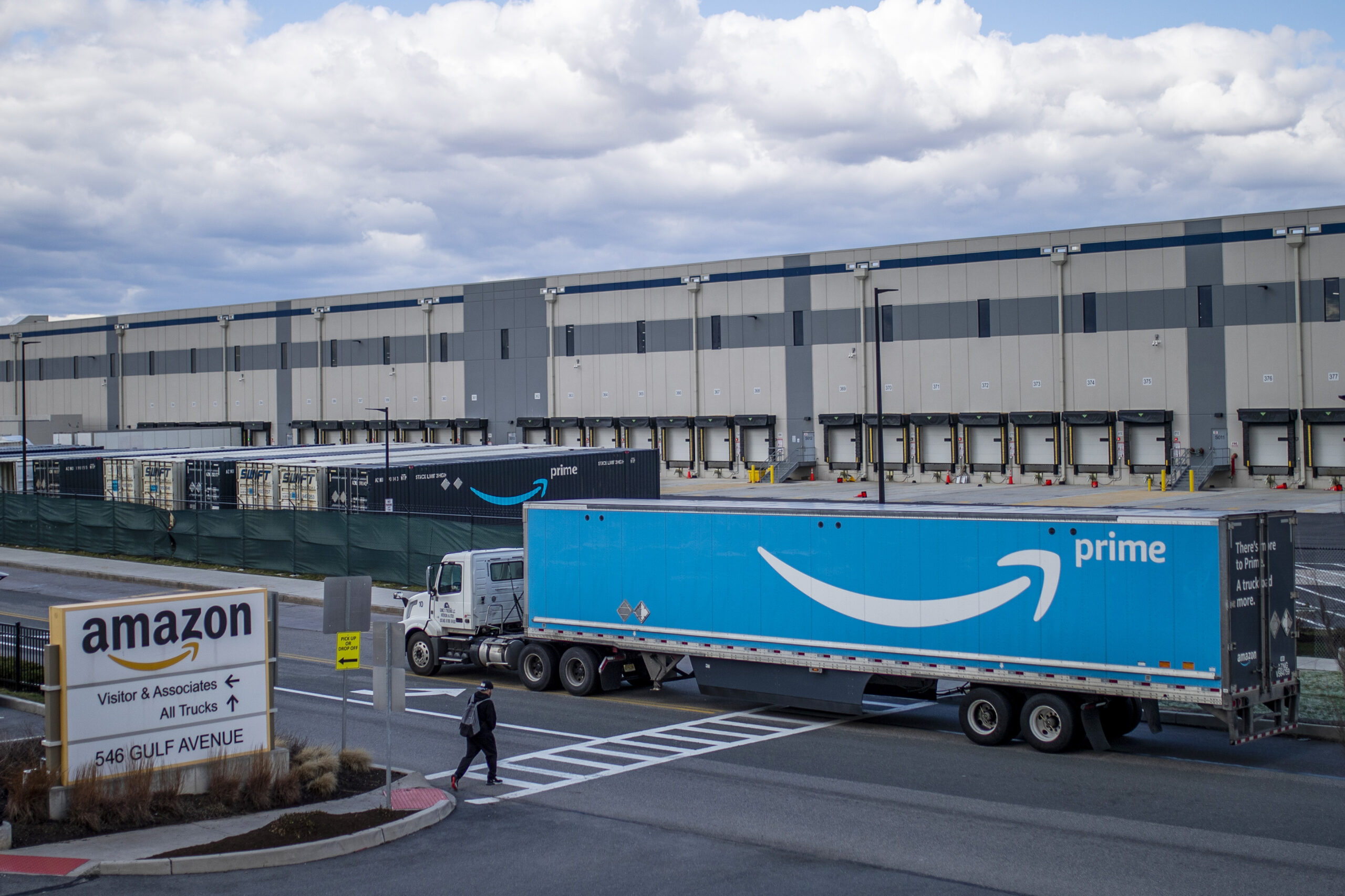With more than 1,000 fulfillment centers worldwide,
Amazon
can provide pretty much anything you need these days — unless it’s a straight answer about having to pay a
union.
Consider the most basic of questions: Can a union require an employer such as Amazon to fire a worker who refuses to pay the union? In a state without right-to-work protections, the answer is yes. But when a senator recently raised the issue with Amazon Labor Union’s Chris Smalls, the union head came up short.
“You would agree with me that if you didn’t want to join a union, you shouldn’t be made to do so?”
asked
Sen. Lindsey Graham during a Senate Budget Committee hearing. Smalls responded, “Who is making them do that?”
The confusion didn’t end there. The next day Reuters
reported
a complaint filed by the Amazon Labor Union to the
National Labor Relations Board.
It seems the union took issue with something an Amazon manager told workers. If the workers unionized, the manager had explained, the union could demand a contract provision that “would require Amazon to fire you if you don’t want to join the union and pay union dues.”
To be clear: Even employees in a state without right-to-work protections don’t have to join a union. But it is true that unions can, and almost universally do, establish clauses in these states saying that workers must pay the union’s “fair-share” fees or be fired.
But the NLRB didn’t clarify that point. Instead, it directed Amazon to agree to a settlement with the union or face legal charges. And the board wasn’t satisfied with punishing Amazon just for telling workers the truth. It also took issue with Amazon holding required staff meetings on the topic of unionization.
Sometimes called “captive audience” meetings, these gatherings have been routine for decades. They often include telling workers about the implications of having a union represent workers. In a state without right-to-work laws, this includes being forced to pay union fees. But now, the NLRB
wants to keep workers
from hearing both sides of the story, and it’s willing to upend established law in the process.
Why? The board claims these so-called “captive audience” meetings threaten employees with discipline if they do not want to listen to what their employer has to say. The board’s general counsel would have these meetings instead be voluntary. In practice, that would mean
imposing
vaguely defined restrictions about not “cornering” employees. It would require employers to issue a disclaimer before broaching the subject with employees.
The NLRB’s vision would also require employees to self-select for these informational meetings, automatically reducing the number of people who will benefit. Think of all-staff meetings on workplace safety, reorganization efforts, or employee benefits. An employee can’t be expected to know whether or how they will benefit from such a meeting until they attend. Hence, such meetings are typically required for all employees.
The board clearly underestimates stigma and peer pressure in the workplace too. By voluntarily attending an employer meeting on the topic, employees may trigger peer pressure from colleagues who suspect they have misgivings about voting for the union.
So what conversations are permitted in the workplace, according to the NLRB? Offensive ones, apparently.
Take, for example, an Amazon worker who harassed a colleague over a bullhorn. The board said Amazon could not protect the harassed employee and fire the harasser. In fact, it demanded that Amazon reinstate the employee, who it argued was fired for protesting the company’s coronavirus safety protocol. The board failed to seriously recognize the worker’s ”
bullying, cursing at and defaming
” of his female coworker.
Freedom of speech, even harassment, is protected by the NLRB, it seems, if it’s under the guise of a protest. But if an employer hosts a meeting for all staff to hear about the implications of unionization, that’s not OK.
Workers around the country deserve clear answers when it comes to unions. So rather than stifling dialogue and keeping workers in the dark, the NLRB might embrace something different, such as the truth.
F. Vincent Vernuccio is a senior labor policy adviser for
Workers for Opportunity
and the president of the
Institute for the American Worker
.






